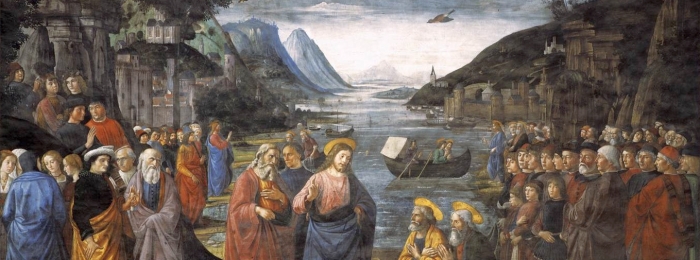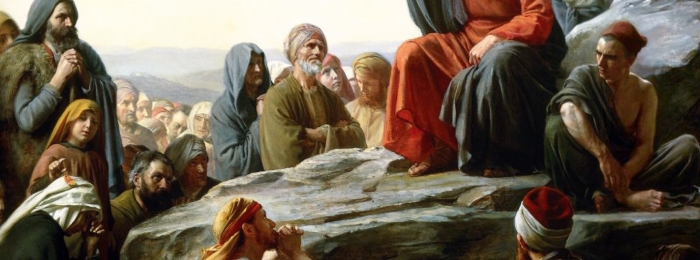Students today wishing to do graduate study in religion will often find “theology” and “biblical studies” to be two different options, on two different tracks. It is fairly standard these days to ask a professor whether she is a “biblical scholar” or a “theologian.” There is a long answer as to why this is so, and I would love to…
Read More
What have we learned so far? The earliest Christians read the Sermon on the Mount as “literal when possible.” “Literal” implies a preference for seeing the sermon as injunctions to be obeyed; “when possible” shows a recognition that the sermon does contain some portions which are not to be taken in a literal way. This reading took place within a larger…
Read More
The church of the first three centuries offers up a reading of the Sermon on the Mount that is “literal when possible.” Jesus offers—to all who hear–commands to be obeyed, but joyfully with anticipation, as part of a larger vision of transformation (through virtue) into a greater and greater likeness of God. Near the end of the fourth century, a…
Read More
“Broadly speaking, in the patristic period, both in the East and West, the Sermon was not perceived as problematic. Quite the contrary, the Sermon was seen as paradigmatic and foundational to understanding Christianity itself.”—Jonathan Pennington[1] Daniel Harrington and James Keenan render a service to us all by helping bridge the gap between moral theology and New Testament studies. In their…
Read More
In 1978, Robert M. Grant argued persuasively that the earliest Christians read the Sermon on the Mount as “literal when possible,” regarding them as commands to be obeyed. Grant’s excellent Semeia chapter, buried in an older volume, is a bit hard to find for the average reader. As we look at the reception history for the Sermon on the Mount,…
Read More
In the history of interpretation, few passages have spawned more theories and garnered less agreement than the Sermon on the Mount. One commentator said the history of scholarship on the sermon might be called “Versions and Evasions of the Sermon on the Mount.”[1] For this reason, Luther memorably named the interpretive confusion “the devil’s masterpiece”: Christ here deliberately wanted to oppose…
Read More
Before we dive into the history of interpretation on the Sermon on the Mount, let me introduce you to my main conversation partners. READING THE BIBLE WITH THE DEAD (Who, Though Dead, Yet Speak) Clement of Alexandria (150-215): Stromateis Book 4, Chapter 6. Tertullian (160-220): Four Books Against Marcion, Book IV, Chapter XIV. Origen (184-253): Commentary on Matthew & On First…
Read More
I am ready to leave the “introductory remarks” to the Sermon the Mount, and begin the second phase of our study: a deep dive into the scholarly background and history of interpretation. But one last introductory post is needed. Since I have argued that the Sermon on the Mount paints a new vision, sets out a new lifestyle, and invites…
Read More
Allow me to take stock of where we are. To help us get our bearings, I am introducing some key “starting points” for understanding the Sermon on the Mount. First we saw that happiness is found in Jesus Christ, but involves a radically different way of seeing the world (and ourselves). Christ came to offer abundant life–the life of the…
Read More
Lord my desire is to be like you To say the things you say, and do the things you do O, help me hear your still voice through all the other noise So that I can be just what you want me to be. – Randy Butler In his book The Divine Conspiracy, Dallas Willard helps set the table for…
Read More


